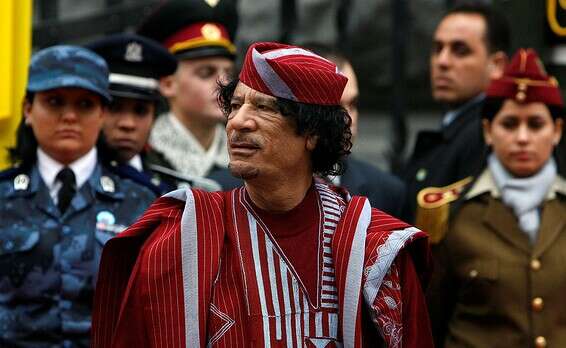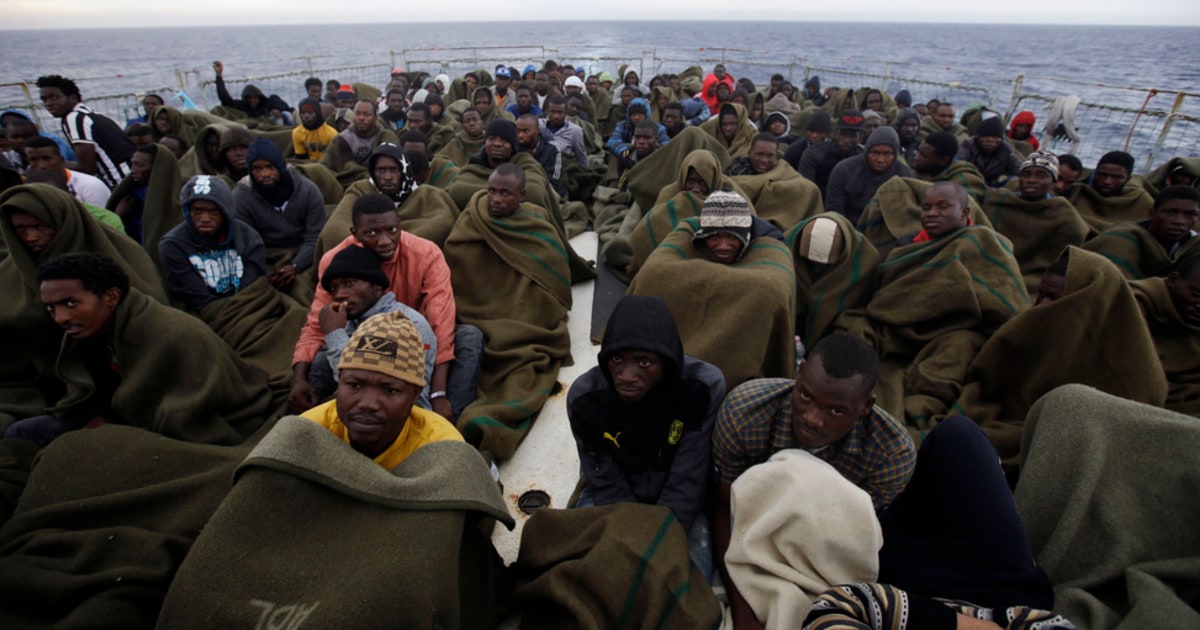Since the lynching of the insane dictator, Libya has been sucked into a whirlpool of foreign interests and civil war • In a special poll young people expressed doubt about their ability to achieve stability
Rebel fighters celebrate the conquest of a boat, Gaddafi's hometown
Photography:
EP / Archive
A long line dragged outside the cold room at the local butcher shop.
Crowds flocked to be photographed as a souvenir with the body of Libyan dictator Muammar Gaddafi, laid on an old mattress like a butcher’s slice.
For more than 40 years, Libya has been flooded with its hollow Arab nationalism, a borderless madness of magnification and the crushing of every notch of opposition.
His choking grip on the global oil market, the colonel took advantage of a socialist policy that bought the loyalty of some of the 15 major tribes, and the other flats celebrating corruption.
He placed his relatives in the Gaddafiya tribe, originally camel herders, in key positions in the army and government institutions.
And as a counterweight, he established a foreign legion of mercenaries from African tribes.
Only when he saw the fall of Saddam Hussein did Gaddafi begin to fear a similar fate and declared that Libya would voluntarily shelve plans for the development of weapons of mass destruction.
In those years the dictator tried to appease the West.
When the time came it did not help him, and the violent repression of protests in the eastern region ended in NATO involvement.
However, the hope that arose with the fall of the dictator a decade ago has been replaced by deep despair in the face of tribalism, political rift and foreign involvement.
No less than 90% of Libyan youths view existing government bodies as illegitimate.
This is what the dismal results of a survey conducted over two weeks from the end of last September and included 1,580 respondents from 40 localities determined.
The respondents, aged 18 to 34 who make up the majority of the country’s population, believe that the agreement signed in the Moroccan city of al-Sahirat in 2015 and seeking to end the Second Civil War failed miserably.
They also do not have a large view of a new agreement, and only 17% think that such a move will indeed lead to stability in the country.
More than 60% responded in a resounding negative.
Allegedly in Libya there are two main forces.
A nucleus of control in Tripoli that is identified with the members of the Islamist bloc at the 2012 National General Congress.
This is a new elite that has been trampled to the ground in the Gaddafi era.
Many of her comrades were then imprisoned or out of state, and her dormant cells came to life in the 2011 uprising.
The nucleus of control in the East is identified with the "Alliance of National Forces", a coalition of the old and relatively liberal elites who rebelled against Gaddafi.
In fact, in the middle are Islamist terrorist organizations like ISIS and 15 major tribes.
These include five tribes in the northwest, five tribes in the northeast, two super-tribes in the southwestern province (divided into African and Arab sub-tribes) and a barbarian tribe.
In any case, the agreement reached by the UN in Morocco sought to unite parliamentary institutions that had long since lost their legitimacy. Eight years had passed since the elections for the Justice and Construction Party, the local branch of the Muslim Brotherhood, a significant force in the National Congress. Six years have passed Since then, the independent representatives in the House of Representatives have been elected with a meager turnout of 18% (compared to 60% in the 2012 election).
But perhaps a more significant reason for such sparse trust is that since the outbreak of protests in the eastern periphery, Libya has become a playground for foreign countries, each with a different interest.
Its fate has never really been in the hands of its citizens, given the vast oil reserves and gateway of refugees from Africa to Europe.
The main turning point in the first civil war was the UN Security Council's decision to ban flights in Libyan skies to prevent the Gaddafi regime from carrying out a massacre of its opponents. Led by Barack Obama's United States, NATO forces shelled Tripoli and helped the rebels advance their campaign.
In the second civil war that broke out in 2014, it was the Middle East countries that became the key players.
Egypt and the United Arab Emirates supported the Eastern government to block the axis of the Muslim Brotherhood and jihadist organizations.
Qatar and Turkey were again found to be the patron saints of the Islamists, who conquered Tripoli.
In the past year, Erdogan's Ankara has led to a turning point in the battle for the capital, which almost ended in victory for Eastern forces.
Erdogan assisted the "consensus government" in exchange for an agreement on maritime borders between the two countries, which benefited Turkish interests in the Mediterranean.
Now the two camps are facing another ceasefire.
The agreement has been in place for three months and called for the departure of foreign forces from the country.
According to the UN special envoy to Libya, Stephanie Williams, there is a force of 20,000 foreign troops and mercenaries in Libya. These are mainly Turkish forces, some of whom came from Idlib's last Sunni strongholds in northwestern Syria. Russia also aided General Khalifa Hefter The commander of the Eastern Forces, in his military campaign. According to reports, this aid included weapons, money and soldiers.
But Hefter's prestige has been damaged in recent months following the defeat in his siege of Tripoli.
The 77-year-old Field Marshal, who dreams of reuniting Libya, was one of the officers who led the coup with Gaddafi against King Idris I, and even participated in the Yom Kippur War as commander of the Egyptian Aid Force against Israel.
Gaddafi later abandoned Hefter and his men in the failed war in Chad, and these joined the United States.
A native of al-Ajadabia near Benghazi, he enjoys a long comfortable life in California.
When the power of the Islamists rose in parliament, Hefter formed a force that conquered Benghazi and the House of Representatives in Tobruk appointed him commander of the Eastern militia - the national Libyan army.
Although Hefter recently stated that the war with Turkey is imminent and must be prepared for, but last week a surprising delegation arrived in Tripoli.
These were diplomats from Egypt, the patron of Hefter, who visited the capital of the Islamists for the first time since the Second Civil War.
At the same time, the Guardian reported that the UN may send an observer force, which will try to maintain a fragile ceasefire. Also, the organization's representative is trying to mobilize more pragmatic forces than a dialogue through a digital forum. The goal is to form a transitional government and hold new elections in December 2021, in which Libya will mark 70 years of independence.
Despite the despair, the voices supporting the compromise understand that there is no other choice. In contrast to the Gaddafi era, in which major tribes could be bribed and others pushed thanks to replica profits from the oil industry, the global energy market became more competitive. Black gold is no longer enough and the restoration of the industry's infrastructure, which was neglected and damaged in the civil wars, requires a massive investment. It is no wonder that there have been recent contacts on the subject between Tripoli and Benghazi. Apparently there are those who internalize that without cooperation, there will no longer be anything to fight for.








